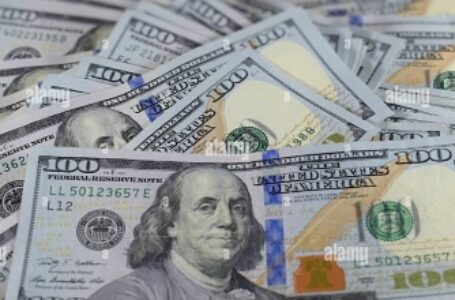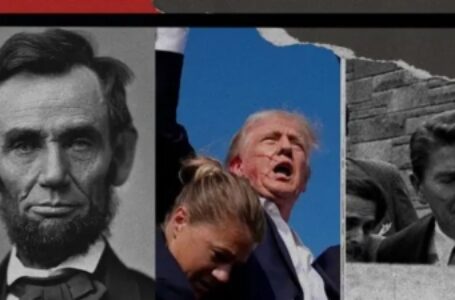Recession Ahead? The Fed’s Interest Rate Policy and Corporate Debt Crisis

Home of News, Politics & Opinion
Are The Fed’s Higher Interest Rates Driving the US Into Recession?
by David Reavill
Perhaps the most unfortunate trend in our public discourse is labeling specific points of view as “unacceptable.” These are concepts or ideas that mustn’t be talked about. The most common of these labels is the dreaded “Conspiracy Theory.” A Conspiracy Theory is an outrageous or politically incorrect thought that is not even discussed.
This is the most anti-intellectual, anti-science approach that I can imagine. Taking a concept off the table is different from how real science works. In the Scientific method, any idea, no matter how outrageous, is placed on the table to be examined and tested. Real science will determine whether it is a valid idea (a reasonable explanation of reality) or an invalid idea. Does the concept have true predictive qualities, and thereby can predict what will with some accuracy or a bad one? These ideas are called “theories” or initially “hypotheses.” And through experiments, or increasingly computer models, their validity is tested.
Wacky concepts, or hypotheses, are eliminated early. And they are labeled “invalid,” an idea worth exploring, but in the end, it was not considered a good descriptor of reality.
I aim to turn one of the most destructive aspects of our current public discussion into something much more constructive.
“C” Theory 1: The Fed’s Higher Interest Rates Are Creating A Recession
I believe the Federal Reserve’s Policy of Higher Interest Rates will create a recession. This is principally due to the high leverage in the financial system. After over a decade of radically low-interest rates, corporations capitalized their balance sheets by borrowing.
Take, for instance, Home Depot. Their most recent Annual Report shows the company has $1.5 billion in shareholder equity (common stock) and $41.9 Billion in long-term debt (corporate bonds). That’s an extraordinary amount of debt to equity. That may make sense when interest rates are meager, and Home Depot’s interest on its bonds was also low. It does not make sense when interest rates are now 5X higher than last year. As their bonds mature and roll over to these new higher rates, Home Depot will find that these higher bond interest payments increasingly squeeze their income.
Home Depot is far from alone in this situation. Almost all of the retail sector carry very high debt levels, as do many of the Top 500 Companies in the country.
It is my “C” Theory that this dramatic increase in debt service payments will drive many companies to lay off workers and close shops, which will help create the next recession.

“C” Theory Response: the Fed’s Position
The Fed looks at the Economy and sees a very different picture than do I. For over a year now, the Fed has focused on Inflation. It is Inflation that is the primary driver for all of these interest rate hikes. From their point of view, if they can conquer the “Inflation Genie,” then everything else will fall into place.
Under the Humphrey Hawkins Act (The Full Employment And Balanced Growth Act of 1978), the Federal Reserve was given the twin mandates of “full employment” and “stable prices.” Inflation has exploded, so the part of stable prices is failing. So the Fed will fight Inflation until the other mandate, full employment, begins to slide. With the unemployment rate at a meager 3.5%, we’re liable to see the Fed continue fighting Inflation for some time.

Where We Stand
Yesterday we received the excellent news that Inflation for March was a mere 1/10th%, the lowest level in four months. The question is: what caused this reduction in Inflation? The Fed will point to their tightening monetary policy, raising interest rates, as the primary cause for the decline. And it is here that the Fed and I will part company.
On the other hand, from my point of view, the current reduction in Inflation is due almost entirely to a slowing economy and a reduction in the demand for and cost of energy, primarily oil, and gas. If I’m correct, then the recent decrease in OPEC+ production and its subsequent price hike should cause Inflation to come roaring back. That’s my “C” Theory.
Hopefully, this framework will be a helpful way to look at our Economy in the future. And I will come back to this construct in the future to measure how we are progressing.
It is worth noting that the Federal Reserve’s approach to managing the Economy will continue to be more restrained, as they principally focus on their twin mandate, full employment/stable prices.
However, we will look at the Economy very differently. We will be much more eclectic.
















